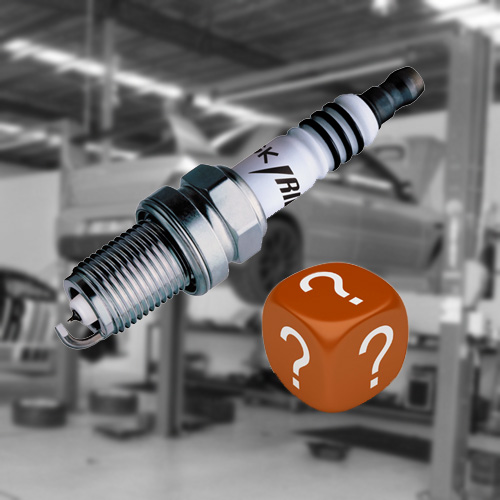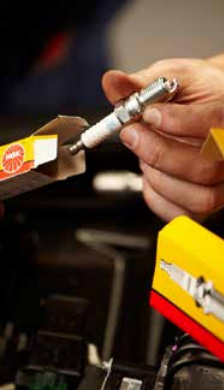
Due to increasingly strict vehicle emission regulations that have been legislated by influential Federal Governments, the pressure on all global vehicle manufacturers to reduce harmful emissions and improve fuel efficiency has intensified.
NGK’s Original Equipment engineers work closely with all vehicle manufacturers to develop unique Precious Metal Spark Plugs that are specific for each of their vehicle applications, and adhere to the performance and emission guidelines.
These Spark Plugs possess superior ignitability over conventional Nickel Spark Plugs, and assist vehicle manufacturers to meet and exceed modern day regulations that are mandatory.
“Can I substitute a precious metal plug for a similar or equivalent standard plug?”

Even though many plugs with similar part numbers may look the same, each part number has its own characteristics, with some changes not physically visible. These differences are imperative to the operation of the engine, and straying from the recommended plug can result in some loss of performance (best case) or severe engine damage (worst case).
Following is a list of possible design characteristics and problems that can result if the recommended plug is not used:
1) Modified Ground Electrode
Ground electrodes can have a number of modifications to increase their heat dissipation and vibration resistance. An inferior substitute may not have these
features and may cause damage if the ground electrode comes loose or melts at the weld.
2) Ignitability
Precious metal plugs have a higher ignitability than standard plugs. Substituting to another plug may result in poor performance.
3) Required Voltage
Precious metal plugs require less voltage to spark due to the fine centre electrode. Changing to a standard plug will put additional strain on the ignition system. This may also inhibit cold starts.
4) Internal Resistance
The internal resistance in some platinum and iridium plugs differ from the standard resistor plugs. If you do not have the required noise suppression for your vehicle, damage to onboard electronics may occur.
5) Double Precious Metal Plug
NGK double platinum and iridium-platinum plugs have a platinum chip on their ground electrode. There can be differences in the quantity of platinum and the shape of the chip. For vehicles with dual polarity ignition, sparking occurs in both directions (centre to ground and ground to centre). If standard plugs are used then plug life will be dramatically reduced.
Designs can consist of one or more of the characteristics listed above. These characteristics are requested by vehicle manufacturers as each engine design is unique and requires changes in its plugs to suit.
For peace of mind, ALWAYS ensure you use a plug recommended to meet the Original Equipment specification. This will avoid any damage and ensure peak performance of your vehicle.
Further to the proper selection of the correct spark plug for the application is correct installation and torque. Check out the short video below.
Hint: It's not with a rattle gun!
Proper Torque of Spark Plugs
To find out more about NGK’s range of Spark Plugs visit ngk.com.au